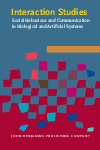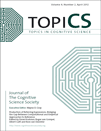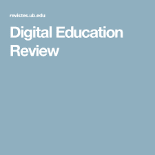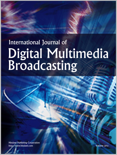
Computers in Human Behavior Reports
Scope & Guideline
Transforming understanding of human-machine interactions.
Introduction
Aims and Scopes
- Human-Technology Interaction:
Research on how individuals interact with various forms of technology, including social media, virtual reality, and online learning platforms. This includes the psychological impacts of technology use and its role in shaping social behaviors. - Digital Literacy and Competence:
Exploration of the skills required to effectively navigate and utilize digital tools. This includes studies on digital literacy in educational settings, workplace environments, and among different age groups. - Mental Health and Well-being:
Investigations into the effects of technology on mental health, including studies on social media's impact on anxiety, depression, and overall well-being. The journal also addresses interventions using technology for mental health support. - Educational Technology:
Focus on the use of technology in educational settings, including the effectiveness of online learning, blended learning environments, and the development of digital competencies among students and educators. - Technostress and Digital Overload:
Research on the negative consequences of technology use, such as technostress, digital fatigue, and the implications for work-life balance and productivity. - User Experience and Interaction Design:
Studies that analyze user experiences with technology, including the design of user interfaces, accessibility, and the emotional responses elicited by digital tools.
Trending and Emerging
- Impact of Artificial Intelligence:
A growing focus on how AI technologies influence user behavior, decision-making, and emotional responses, particularly in educational and workplace settings. - Metaverse and Virtual Environments:
Increasing research on user engagement, social dynamics, and psychological effects within the metaverse and other virtual environments, reflecting the rise of immersive digital experiences. - Digital Well-being and Mindfulness:
An emerging emphasis on promoting mental health through digital interventions, including mindfulness apps and online support communities, highlighting technology's role in enhancing well-being. - Technostress Management:
As technostress becomes more prevalent, studies exploring strategies and interventions to manage digital overload and stress are gaining traction, reflecting a need for coping mechanisms in a technology-driven world. - Diversity and Inclusivity in Technology Use:
Research addressing how different demographic factors (e.g., age, gender, cultural background) impact technology use and experiences, emphasizing the need for inclusive design and understanding diverse user needs.
Declining or Waning
- Traditional Media Influence:
Research focusing on the effects of traditional media (television, radio, print) on behavior is becoming less prominent as digital media and social networking sites take center stage in studies about behavior and interaction. - General Internet Use and Addiction:
While internet addiction was a significant focus in earlier publications, recent papers have shifted towards more specific aspects of technology use, such as social media addiction or smartphone dependency, indicating a more nuanced approach to the topic. - Face-to-Face Communication Studies:
As technology-mediated communication becomes more prevalent, studies specifically focused on traditional face-to-face interactions are declining, with less emphasis on how these interactions compare to digital communication. - Crisis Response and Technology:
Research examining the role of technology in crisis management and response during events like natural disasters or economic crises has waned, possibly due to the saturation of studies in this area. - General Psychological Effects of Technology:
Broader studies on technology's psychological effects are being replaced by more targeted research focusing on specific populations or technologies, such as the impact of AI on specific user groups.
Similar Journals

Cognition Technology & Work
Exploring the Intersection of Mind and MachineCognition Technology & Work, published by SPRINGER LONDON LTD, is a premier journal dedicated to exploring the multifaceted interactions between cognitive processes and technological applications in various work environments. With an ISSN of 1435-5558 and an E-ISSN of 1435-5566, this journal has established itself as a critical resource for scholars and practitioners in the fields of Computer Science, Human-Computer Interaction, and Philosophy. Evaluated in the 2023 Journal Citation Reports, it holds impressive category quartiles, ranking Q2 in Computer Science Applications and Human-Computer Interaction, and Q1 in Philosophy, highlighting its significant impact in academic discourse. Furthermore, its Scopus rankings showcase its robust standing, particularly within the Arts and Humanities and Computer Science sectors. Adopting a rigorous peer-review process, the journal aims to foster scholarly communication and advancement in the understanding of cognitive influences on technology in the workplace. It serves as an essential platform for researchers, professionals, and students alike, providing insight into innovative methodologies and theoretical frameworks that shape the future of cognitive technology in work settings.

Educar
Empowering Educators with Cutting-edge ResearchEducar, published by the Universitat Autònoma de Barcelona, stands as a significant contributor to the fields of education, communication, and human-computer interaction. With an Open Access policy since 1982, this journal provides an invaluable platform for the dissemination of innovative research and insightful perspectives from diverse academic backgrounds. The journal boasts a commendable position in the 2023 category quartiles, ranking Q2 in Communication and Q3 in both Education and Human-Computer Interaction, which underscores its relevance and influence within these disciplines. Educar is indexed in Scopus and reflects a strong reception in the academic community, with its Social Sciences - Communication category ranked 173rd out of 511 journals, affirming its 66th percentile standing. Researchers and professionals will find this journal particularly useful for accessing a wide range of studies that not only push the boundaries of knowledge but also offer practical insights that enhance educational practices and technological engagement.

Interaction Studies
Navigating the Intersections of Language and TechnologyInteraction Studies is a premier journal published by JOHN BENJAMINS PUBLISHING CO, focusing on the dynamic intersections between language, communication, and technological interaction. Since its inception in 2004, the journal has established itself as a critical resource in the fields of Animal Science and Zoology, Communication, Human-Computer Interaction, and Linguistics and Language, achieving impressive rankings and quartile placements across multiple disciplines. The journal's commitment to interdisciplinary research is reflected in its Q1 status in Linguistics and Language and Q2 rankings in both Communication and Animal Science for 2023. Interaction Studies not only provides a platform for innovative research but also facilitates a deeper understanding of complex interactions in various contexts, making it an essential read for scholars, professionals, and students alike. The journal is based in the Netherlands and is accessible through traditional subscription models, with an extensive archive providing valuable insights into evolving scholarly discourses. With its robust impact and academic rigor, Interaction Studies is poised to remain a leading voice in the ongoing exploration of interactive phenomena.

Topics in Cognitive Science
Exploring the Intersection of Mind and TechnologyTopics in Cognitive Science, published by WILEY, is a premier interdisciplinary journal that advances the understanding of the cognitive processes that underpin human behavior and interaction with technology. With a commendable impact factor and a strong focus on research from 2009 to 2024, this journal garners significant attention in various subfields, as evidenced by its Q1 ranking in Experimental and Cognitive Psychology and Linguistics and Language, alongside a Q2 position in Artificial Intelligence, Cognitive Neuroscience, and Human-Computer Interaction. Researchers and professionals will find invaluable insights into the latest experimental findings, theoretical discussions, and practical applications that bridge cognitive neuroscience, psychology, and computer science. Topics in Cognitive Science is especially pivotal for those aiming to delve deeper into cognitive mechanisms and their implications within our increasingly digital world, making it an essential resource for students and scholars alike.

Internet Research
Fostering Insight into the Evolving Online LandscapeInternet Research, published by Emerald Group Publishing Ltd, stands as a pivotal peer-reviewed journal in the domains of communication, economics, and sociology. Established in 1991, it has continually advanced the understanding of how the internet influences human interaction, economic behaviors, and sociopolitical structures. With impressive ranking achievements, including Q1 status in Communication, Economics and Econometrics, and Sociology and Political Science, the journal is recognized for its high impact, evidenced by its outstanding Scopus rankings—28th in Sociology and Political Science and 12th in Communication, highlighting its relevance and quality within the academic community. While the journal is not open access, its selective publication of landmark research attracts a dedicated readership of scholars, professionals, and students eager to explore the multidimensional impacts of the digital age. With a focus on innovative methodologies and empirical findings, Internet Research aims to foster scholarly discourse that shapes our understanding of the evolving online landscape through 2024 and beyond.

ACM Transactions on Applied Perception
Transforming Perceptual Research into Practical ApplicationsACM Transactions on Applied Perception is a leading journal published by the Association for Computing Machinery, focusing on the intersection of perception science and computational methods. With an ISSN of 1544-3558 and an E-ISSN of 1544-3965, this esteemed publication has been a vital resource for innovators and researchers since its establishment in 2004. It operates within the ambit of Computer Science and the realms of Experimental and Cognitive Psychology, boasting a commendable impact factor and category rankings, including Q2 in Computer Science (miscellaneous) and Q3 in both Experimental and Cognitive Psychology and Theoretical Computer Science. The journal's scope encompasses a plethora of studies aimed at understanding human perception through computational lenses, making it an essential platform for scholarly exchange. Although it does not currently offer an Open Access option, its extensive reach and rigorous peer-review process ensure high visibility and impact in the academic community. By fostering collaboration across disciplines, ACM Transactions on Applied Perception encourages advancements that bridge perceptual research with practical applications, making it invaluable for researchers, professionals, and students engaged in this dynamic field.

Digital Education Review
Advancing Knowledge in Educational TechnologyDigital Education Review, published by the University of Barcelona, stands at the forefront of the Digital and Educational Technology field, offering a valuable platform for researchers, educators, and policymakers since its inception as an Open Access journal in 2010. With an emphasis on innovative practices and critical evaluations in digital education, the journal has garnered an impressive standing within the academic community, achieving rankings of Q3 in Computer Science Applications and Q2 in Education for 2023, alongside a notable position in the 71st percentile of Social Sciences - Education rank (447 out of 1543). The journal aims to foster interdisciplinary dialogue and disseminate research that influences educational transformation through digital means. Based in Spain, the Digital Education Review not only promotes high-quality research but also engages with a global audience, making it a pivotal resource for those dedicated to advancing the understanding of digital educational practices.

Annual Review of CyberTherapy and Telemedicine
Exploring Innovations in Cybertherapy and TelemedicineAnnual Review of CyberTherapy and Telemedicine, published by the Interactive Media Institute, serves as a premier platform for advancing knowledge and research within the dynamic fields of cybertherapy and telemedicine. This Open Access journal, operational since 2003, is based in Belgium and has seen a convergence of contributions from 2009 to 2023. With a focus on interdisciplinary applications, the journal spans crucial areas such as computer science, neuroscience, psychology, and rehabilitation, showcasing diverse studies that impact clinical practices and patient outcomes. Despite its current Q4 quartile rankings in multiple categories, the journal aims to enhance its visibility and impact within these emerging fields, catering to researchers, practitioners, and students eager to explore advancements in therapy and remote patient care.

Cyberpsychology-Journal of Psychosocial Research on Cyberspace
Advancing Insights into Cyberspace BehaviorCyberpsychology - Journal of Psychosocial Research on Cyberspace, published by Masaryk University, Faculty of Social Studies, is a pioneering open-access journal dedicated to the rapidly evolving field of cyberpsychology, exploring the intricate relationship between technology and human behavior. Since its inception in 2007, this journal has provided a vital platform for researchers and practitioners to disseminate findings on how cyberspace influences social interactions, mental health, and identity formation. With an impressive Q1 ranking in Communication and a strong presence in related fields, including Psychology and Social Sciences, the journal garners significant attention, reflected in its high rankings in Scopus. The open-access model ensures that groundbreaking research is freely accessible, promoting widespread engagement within the academic community. Located in the heart of the Czech Republic, it aims to foster interdisciplinary discussions and encourage critical research that addresses the psychosocial challenges in our increasingly digital world. Researchers, students, and professionals alike are invited to contribute to and benefit from the diverse and dynamic discourse facilitated by this esteemed journal.

International Journal of Digital Multimedia Broadcasting
Connecting Ideas in the World of Media TechnologyThe International Journal of Digital Multimedia Broadcasting is a leading scholarly platform dedicated to the interdisciplinary exploration of digital multimedia broadcasting, published by HINDAWI LTD. With an ISSN of 1687-7578 and an E-ISSN of 1687-7586, this Open Access journal has made significant strides since its inception in 2008, ensuring wide accessibility and dissemination of research. Based in the United States, at Adam House, 3rd Flr, 1 Fitzroy Sq, London W1T 5HF, England, the journal covers a range of topics relevant to Communication, Electrical and Electronic Engineering, and Media Technology, boasting impressive Scopus rankings that highlight its influence in these fields. As part of the Q3 category in Communication and Electrical Engineering, and Q2 in Media Technology for 2023, the journal serves a vital role in fostering the understanding of technological advancements and their applications in multimedia broadcasting. Researchers, professionals, and students are encouraged to contribute to and benefit from the journal's rich repository of knowledge, paving the way for innovative developments in this dynamic industry.